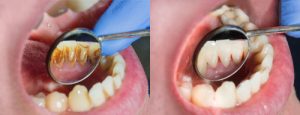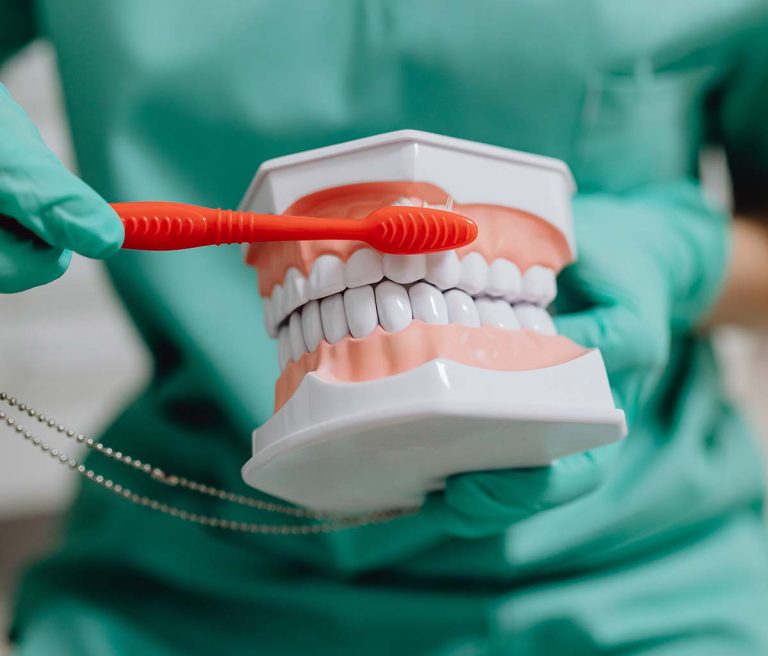Gum bleeding is a common dental problem that many people experience. It is often a sign of an underlying issue, such as gum disease or poor oral hygiene. However, there are also several other factors that can contribute to gum bleeding. In this article, we will explore the various reasons why gums may bleed and what you can do to prevent and treat this issue.
Gingivitis:
One of the most common causes of gum bleeding is gingivitis, a mild form of gum disease. Gingivitis is caused by a buildup of plaque or tartar on the teeth and gums. This plaque contains bacteria that can irritate the gums, leading to inflammation and bleeding. If left untreated, gingivitis can progress to periodontitis, a more severe form of gum disease that can cause tooth loss. Regular dental cleans to remove this plaque and tartar build up can resolve bleeding gums.

Wisdom teeth:
Wisdom teeth often are impacted and may come through in a poor position resulting in a flap of gum sitting around it that collects food debris and bacteria. This can result in pain, swelling, or bleeding in the area. This condition is called pericoronitis and may require removal of the wisdom tooth.
Pregnancy:
Pregnancy is another common cause of gum bleeding. Hormonal changes during pregnancy can cause the gums to become more sensitive and prone to bleeding. This condition, known as pregnancy gingivitis, can also be exacerbated by poor oral hygiene.
Brushing Too Hard:
Brushing your teeth too hard can also cause your gums to bleed. When you brush too aggressively, you can damage the delicate tissues of your gums, leading to bleeding and inflammation. To avoid this issue, use a soft-bristled toothbrush and gentle circular motions when brushing.
Medications:
Certain medications, such as blood thinners, can increase your risk of gum bleeding. If you are taking a medication that may be contributing to your gum bleeding, speak with your healthcare provider to determine if there are any alternative options available.
Vitamin Deficiencies:
Finally, certain vitamin deficiencies, such as a lack of vitamin C or K, can also contribute to gum bleeding. Vitamin C is important for the health of your gums and can help to prevent bleeding, while vitamin K is essential for blood clotting. If you suspect that your diet may be lacking in these vitamins, speak with your healthcare provider about dietary supplements or changes to your diet.
In conclusion, there are several reasons why your gums may be bleeding. Gingivitis, pregnancy, brushing too hard, medications, and vitamin deficiencies are all potential culprits. If you are experiencing gum bleeding, it is important to speak with your dentist or healthcare provider to determine the underlying cause and develop an appropriate treatment plan. By practising good oral hygiene, eating a healthy diet, keeping up with regular dentist visits and seeking prompt treatment for any dental issues, you can help to prevent gum bleeding and maintain optimal oral health.


